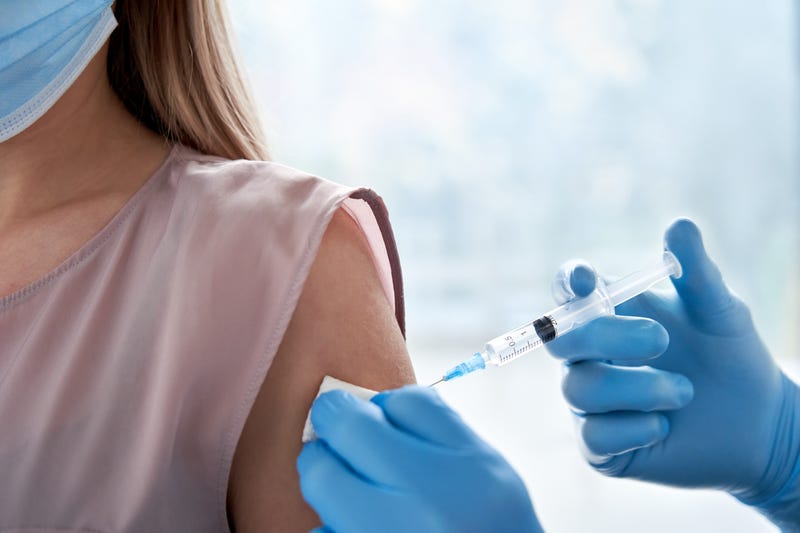
PHILADELPHIA (KYW Newsradio) — Of all breast cancers, triple-negative breast cancer is the most aggressive and has the least effective treatments.
“There's three common receptors that are expressed on a tumor: ER, PR, and HER 2,” explain Dr. William Dahut, chief scientific officer of the American Cancer Society. “If you don't express any of those proteins, then you call them triple-negative, and then we don't have targeted therapies for the breast tumor.”
Researchers at Cleveland Clinic have begun the second phase of vaccine trials on people who are cancer-free but at high risk for developing breast cancer and have opted for mastectomy to lower their risk. Study participants are receiving three vaccinations, two weeks apart and will be closely monitored.
“It targets, basically, a lactation protein, which is no longer found after lactation and aging tissues, but it's present in a lot of triple-negative breast cancer,” Dahut said.
The protein, alpha-lactalbumin (also known as α-lactalbumin or LALBA), is present in the majority of triple-negative breast cancers. If breast cancer develops, the vaccine is designed to prompt the immune system to attack the tumor and keep it from growing.
The doctor says people in that category typically carry genetic mutations that put them at risk of developing triple-negative breast cancer, which accounts for a disproportionately higher percentage of breast cancer deaths, and is twice as likely to occur in Black women.
At just 12% to 15% of all breast cancers, triple-negative breast cancer accounts for a disproportionately higher percentage of breast cancer deaths.
“This sort of strategy, either, you know, before a cancer diagnosis, or for patients at the highest risk of cancer recurrence, makes sense. It's certainly hopeful,” Dahut said. “We're excited that we're finding populations where vaccines may make the most sense. And the research is focused on those at the highest risk of cancer recurrence that have a potentially lethal disease.”
According to Cleveland Clinic, the vaccine is based on pre-clinical research led by the late Vincent Tuohy, Ph.D., a highly regarded cancer researcher. Tuohy’s decades of groundbreaking research led to the development of this investigational vaccine.
The first phase, which started in 2021, included patients who completed treatment for early-stage, triple-negative breast cancer, but are at high risk for recurrence. This second phase, or phase 1b, is to be completed by the end of this year.
For more information and eligibility requirements visit clinicaltrials.gov.


